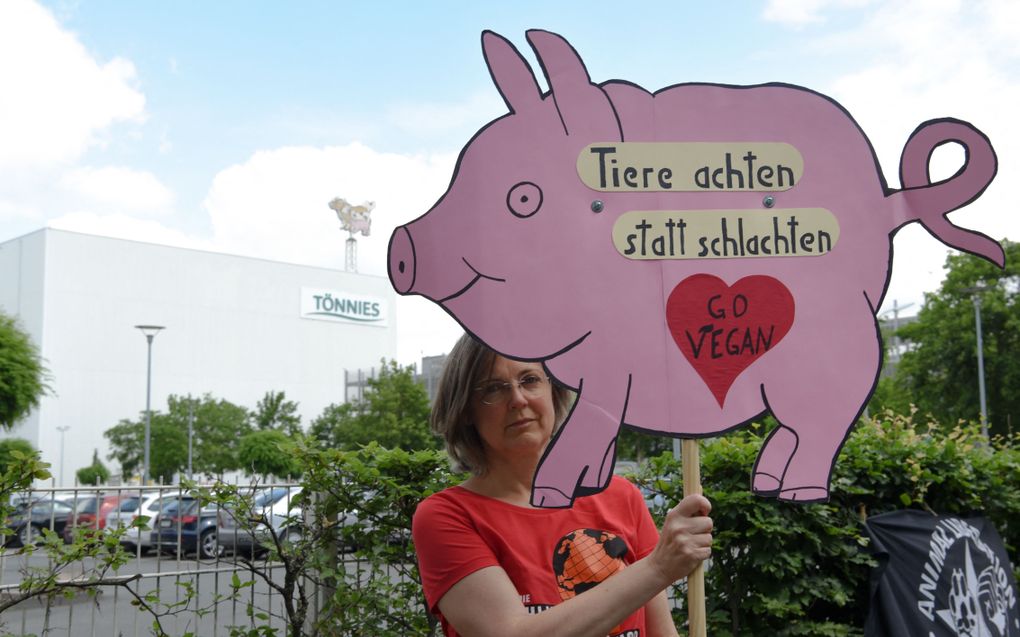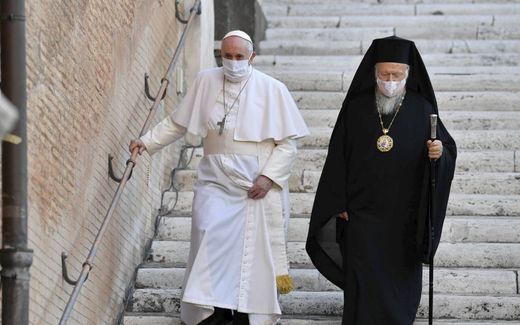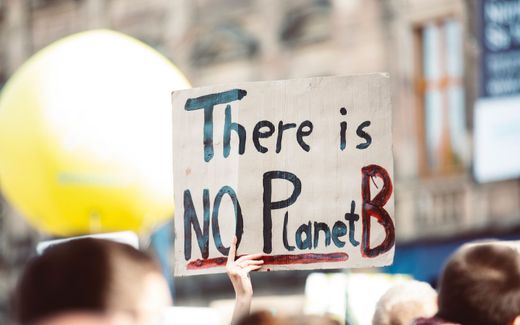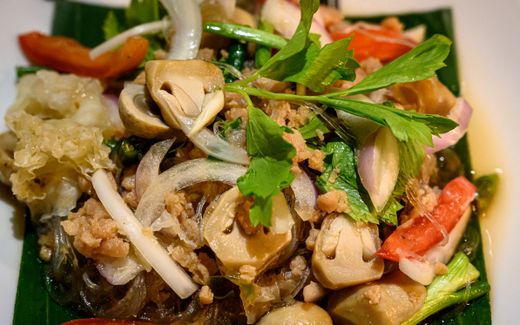Is a Christian morally obliged to become a vegetarian?

Photo AFP, Ina Fassbender
Central Europe
How do humans relate to animals? And how should Christians look theologically at these fellow creatures? German theologian Simone Horstmann researches this topic. She is very critical of the high meat consumption in Germany.
Theologians ignore the topic of animals too often, Horstmann says in an interview with Katholisch.de. Theological textbooks do not contain any sections on animals, the German theologian says, pointing out that even in the creation theology they are hardly mentioned. "Theologians prefer to deal with artificial intelligences over natural ones", she criticises.
Horstmann pleads for a different approach in the Christian tradition towards animals. "The way animals are viewed and treated in religion is largely violent. In Christianity, for example, animals are still mostly viewed as a contrasting foil to everything human", she states. In her opinion, people devalue animals to emphasise their distinction as human beings even more. "To make sense of human redemption, something irredeemable was needed whose death could be dismissed as completely insignificant", Horstmann explains. Furthermore, she adds that the theological view on redemption, which is only possible for human beings, has turned into a practice of domination over animals throughout history.
Violence
Often, Christians refer to the text from Genesis that man should subdue the earth to justify their domination over animals. Yet, Horstmann warns that they must be careful to base their full understanding of the human-animal relationship on a single Bible verse. "There are many other passages in the Bible that deal with animals that are also problematic and intolerably violent", she says. According to the theologian, these passages should be looked at critically, as they are "just as speciesistic as they are patriarchal" according to her. Therefore, Horstmann pleads for a Bible explanation that "does not shamefully sweep this problem of violence under the table."
Churches should pay more attention to the fate of animals and the meat scandals, Horstmann says. "However, this would presuppose that churches and theologies acknowledge their deep guilt in exploiting animals."
Sedation
She says that violence against animals is much more than butchering without sedation. According to her, the core problem is that people think animal lives are meaningless. "And this conception of animals is largely put into practice by the modern animal industry", Horstmann adds. With that, she refers to several scandals in the meat industry that have come to light in recent years.

The entire meat industry is a scandal, the theologian fumes. Society is unwilling to fundamentally recognise its relationship with animals as violent and do anything about it, she says. Horstmann's reasoning is that humans are not dependent on meat for their nutrients, and there are no good reasons to continue meat consumption.
"We should ask the meat eater why he needs this violence against animals because it is so unnecessary", she says to Katholisch.de. At the same time, she does not have high expectations of such a conversation. "To understand oneself as a violent criminal is psychologically enormously demanding for all of us."
Eating organic meat does not solve the problem if it is up to Horstmann. It only serves to appease your conscience, she says. "It still keeps the animal-killing industry going."
Pink bow
Holding pets is also evil, according to Horstmann. Pampered pets suffer from their owners, she thinks. "The Yorkshire Terrier with the pink bow in his hair may seem happy at first glance, but he too is primarily there to satisfy human needs that usually do not correspond to his own needs. From this point of view, the dog is not that much better off than the industrially slaughtered pig."
Related Articles






